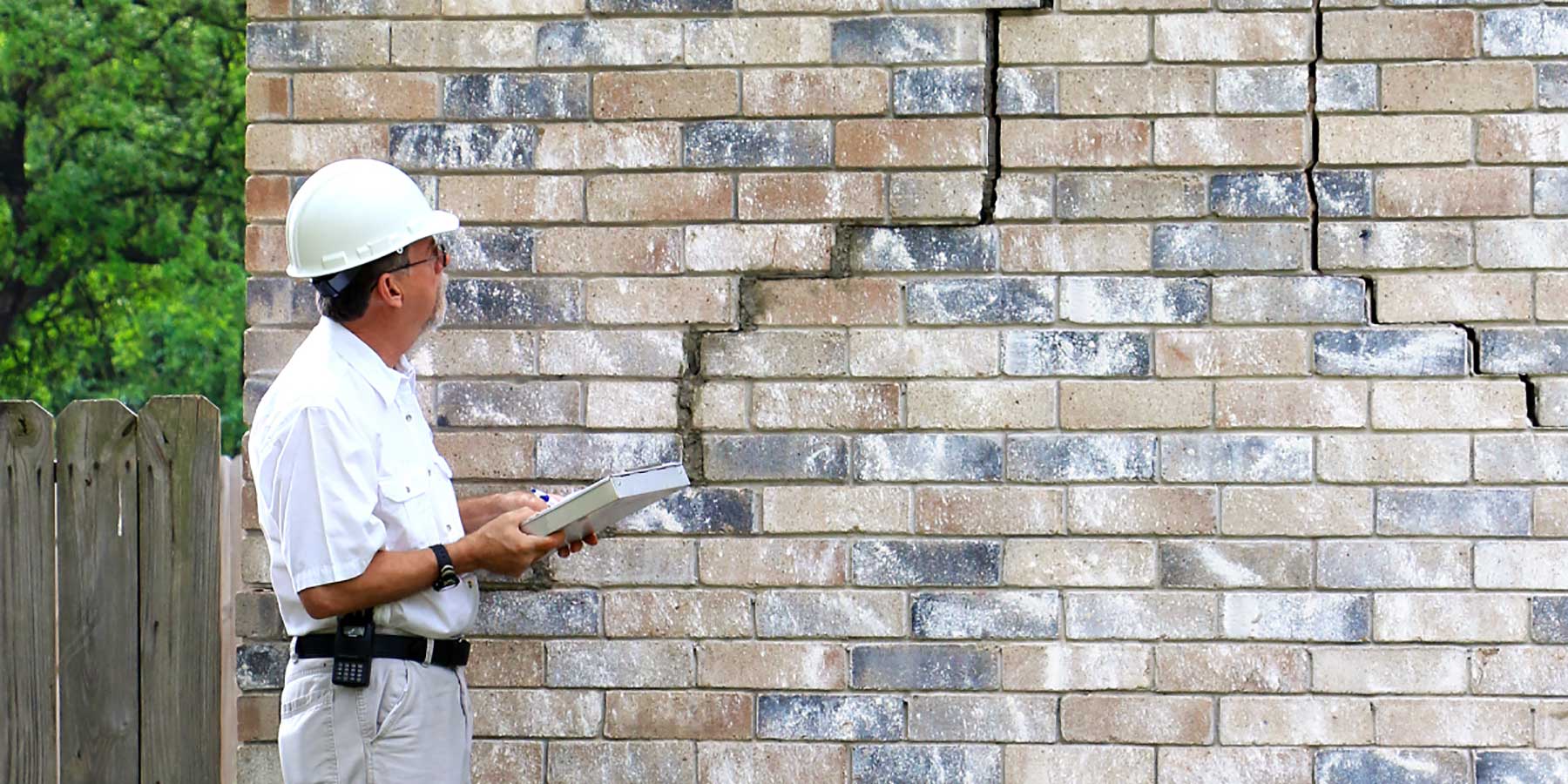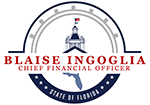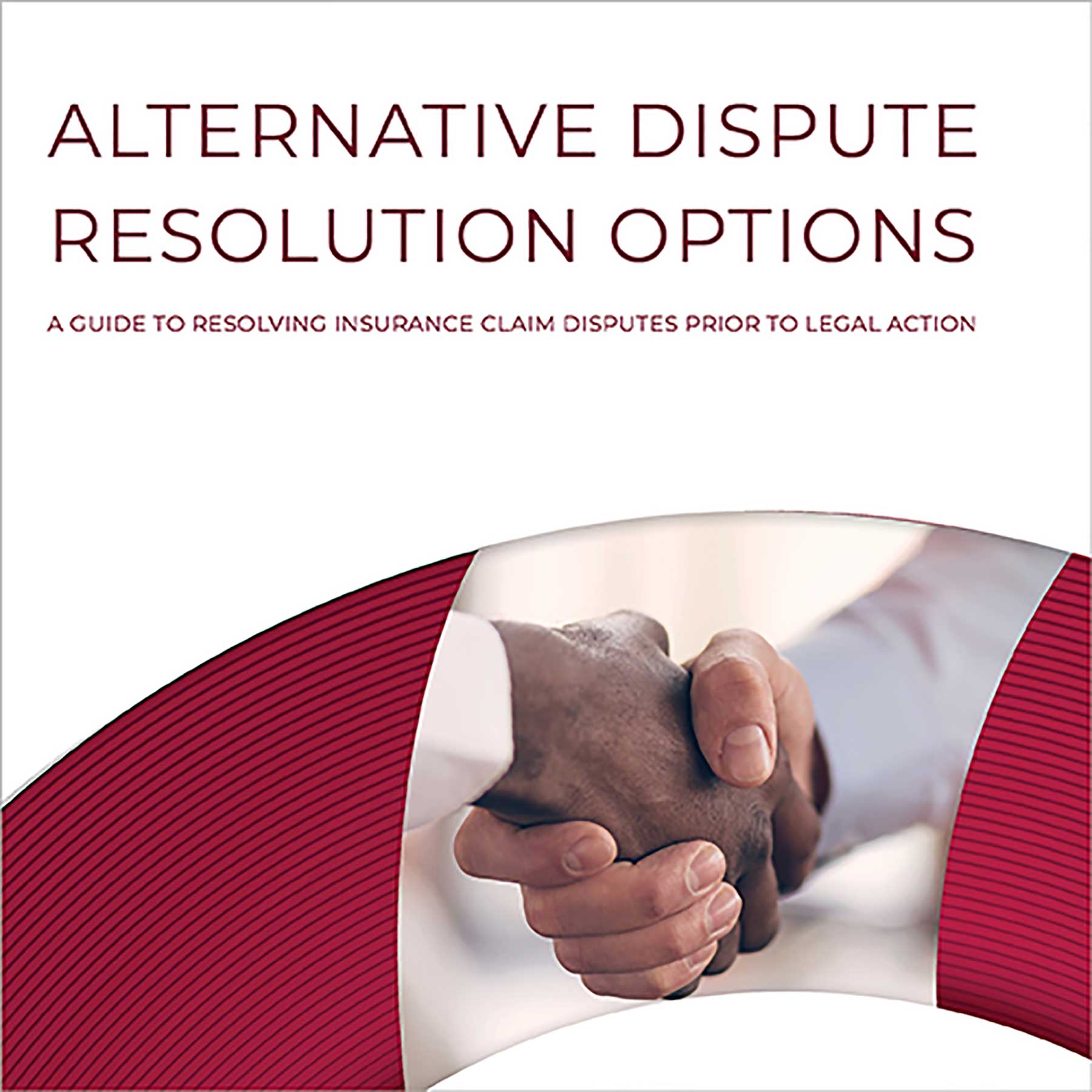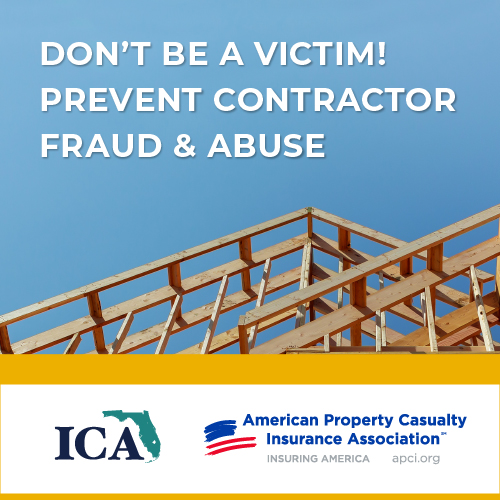
Insurance Professionals
During the insurance claims process, you may encounter insurance professionals who assist in resolving your claim. If you have difficulty resolving your claim, you may decide to enlist the assistance of other professionals, as well.
Be Your Own Advocate by being familiar with the professionals’ role, functions and responsibilities.

Insurance Agent
An insurance agent is typically your first point of contact when purchasing an insurance policy and to answer questions. If you incur damage, you may need to file the claim with your insurance agent. Only purchase insurance from a licensed agent. Ensure that an agent is licensed and authorized to sale insurance for specific companies by accessing the Department of Financial Services’ Licensee Search: https://LicenseeSearch.FLDFS.com.
.jpg)
Insurance Field Adjuster
Once you file an insurance claim, the insurance company may assign the claim to an insurance field adjuster who will physically inspect the damage or do so using technology that allows him/her to see the damage. The insurance field adjuster will document the damage using photos, video and other forms of technology to assist in determining the estimate to repair or replace the damaged property.
The insurance field adjuster may be an employee of the insurance company or an independent adjuster hired by the insurance company to add to its existing staff and to respond sooner.

Insurance Desk Adjuster
The insurance desk adjuster reviews the photos, videos and documents submitted by the insurance field adjuster to determine the cost to repair or replace the damaged property.
The insurance desk adjuster is most likely an employee of the insurance company; however, they may be an independent adjuster hired by the insurance company to add to their staff to respond quicker.

Claims Manager/Supervisor
Depending on the insurance company’s approval process for claims (sometimes based on the amount of the claim), the supervisor of the claims area may become involved in the claim.
The supervisor may need to approve the repair or replacement estimate prior to you receiving payment.

Mediator
If you are unable to settle a dispute with your insurance company, you may be eligible to participate in the Department of Financial Services’ (DFS) mediation program at no expense to you. Mediation is a non-adversarial process that allows you to meet with your insurance company in an informal setting (conference) with a certified, neutral mediator to assist in resolving your claim. The mediator is approved by DFS and must be actively certified as a Florida Supreme Court mediator. The mediator serves as a liaison, facilitates the conference and assists to resolve the dispute.
Review the Alternative Dispute Resolution Options Guide for more information.
Appraiser
If you and your insurance company are unable to agree on the value or scope of the damage, appraisal may be a resolution option. To determine if appraisal is an option available to you, check to see if there is an appraisal clause in your insurance policy or contact your insurance company directly. If available, requirements and guidance on requesting and participating in appraisal are outlined in your insurance policy. Both you and the insurance company must identify and pay for your own appraiser to review the damage and attempt to resolve the dispute. Your appraiser works on your behalf; they may charge a percentage of the amount you are awarded or may charge a set dollar amount for services rendered.
If the two appraisers are unable to agree on the amount, an umpire may be necessary to review the damage and appraisers’ reports, and make a decision on the value or scope of damage. The cost of the umpire, if needed, and other expenses of the appraisal are divided between you and your insurance company equally.
Review the Alternative Dispute Resolution Options Guide for more information on the options available to you and the professionals involved in the process.

Attorney
In the event that you have exhausted all of your dispute resolution options and you intend to take legal action against the insurance company to resolve your insurance claim, you may need to hire an attorney. The attorney represents you in legal and other proceedings to assist in resolving your insurance dispute. Depending on your agreement, you may pay for the attorney out of your insurance claim payment or out-of-pocket.

Public Adjuster
A public adjuster represents you, the policyholder, during the insurance claims process. You hire the public adjuster and pay for their services – a maximum of 20% of the total claim amount for non-disaster claims and a maximum of 10% of the total claim amount for claims caused by a declared disaster by the Governor. The public adjuster can file an insurance claim for you and act on your behalf to settle the claim.
The public adjuster can also:
- assist in completing the forms and documents needed to process your claim;
- make sure claim filing requirements are met;
- help to recover the amount you are owed under your insurance contract.
Public adjusters are required to include specific information and cancellation terms within their contract.
For more information on the role and responsibilities of a public adjuster, review the Working with a Public Adjuster: Your Consumer Rights guide.

Repair Company/Contractor
During the course of the insurance claims process, you may need to obtain a separate estimate from a contractor, especially if you do not agree with the insurance company’s repair/replacement estimate. Before hiring, research the repair company or contractor. Ensure the companies are licensed and have the proper insurance coverage.
To verify a company’s insurance coverage, visit the Florida Department of Financial Services’ Division of Workers’ Compensation website at www.MyFloridaCFO.com/Division/WC. To verify a contractor’s license, visit the Florida Department of Business and Professional Regulation’s website at www.MyFloridaLicense.com.
Before signing a contract for repairs, contact your insurance company to determine if it requires you to use preferred contractors or repair companies. If the contractor requests that you sign an Assignment of Benefits*, be sure to thoroughly review the contract to ensure you understand the terms. Review the Assignment of Benefits Consumer Tips before signing.

Water Remediation Company
If you experience flooding in your home, you may need a water remediation company to remove the water and dry out your home. Research the company to ensure it’s legitimate (registered as a business with the Department of State Division of Corporations) and has the proper insurance coverage.
To verify a company’s insurance coverage, visit the Florida Department of Financial Services’ Division of Workers’ Compensation website at www.MyFloridaCFO.com/Division/WC.
Before signing a contract for water remediation, contact your insurance company to determine if it requires you to use preferred contractors or repair companies. If the company requests that you sign an Assignment of Benefits*, be sure to thoroughly review the contract to ensure you understand the terms. Review the Assignment of Benefits Consumer Tips before signing.
Conducting research and being knowledgeable before engaging with a contractor can assist you in weeding out scam artists to ensure you’re working with a legitimate, licensed contractor. |
Together, Florida’s Insurance Consumer Advocate (ICA) Tasha Carter and the American Property Casualty Insurance Association (APCIA) created a consumer education guide to empower Floridians with the knowledge and resources to help prevent them from falling victim to contractor fraud and abuse, especially after a disaster.
The consumer tips and red flag warning signs outlined in this guide can help reduce your chance of being victimized by a contractor looking to commit insurance fraud or scam you out of your money.
Review the Don't Be A Victim! Prevent Contractor Fraud Abuse guide today! Available in English, Spanish and Creole.
Demolish Contractor Fraud: Steps to Avoid Falling Victim helps educates consumers on how to spot fraud and protect themselves from becoming a victim.
The program includes consumer stories and scenarios to illustrate how contractor solicitation fraud works. It also outlines how contractor fraud is committed; contractor prohibitions and unlicensed adjusting, as outlined in law; and how consumers are impacted. Additionally, red flags and consumer tips are offered to help consumers identify contractor fraud.
Full Coverage: Your Directory of Insurance Resources
Contact Your ICA
Florida's Insurance Consumer Advocate
Office of the Insurance Consumer Advocate
200 East Gaines Street, Tallahassee, FL 32399
Phone: (850) 413-5923
Email: YourFLVoice@MyFloridaCFO.com






